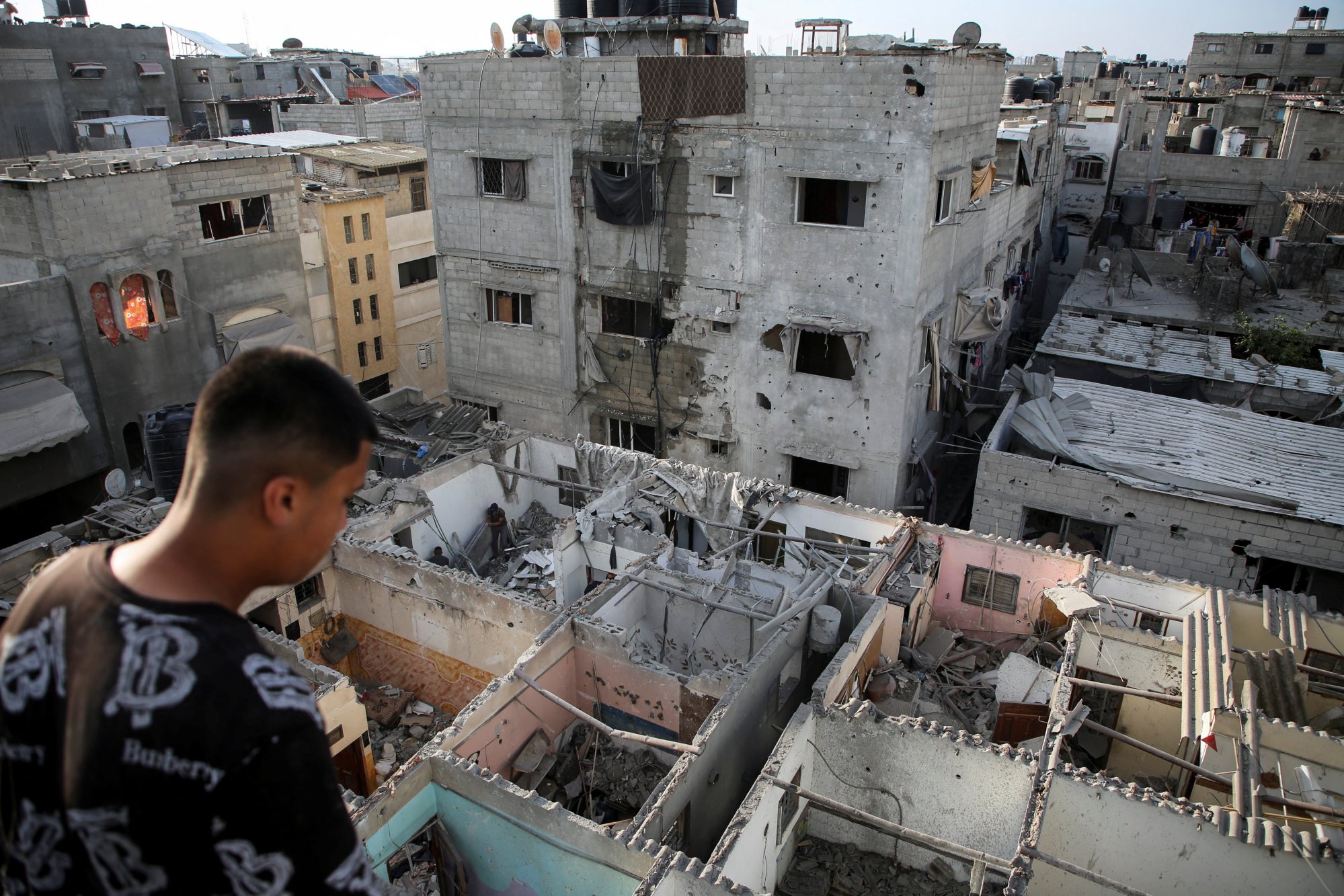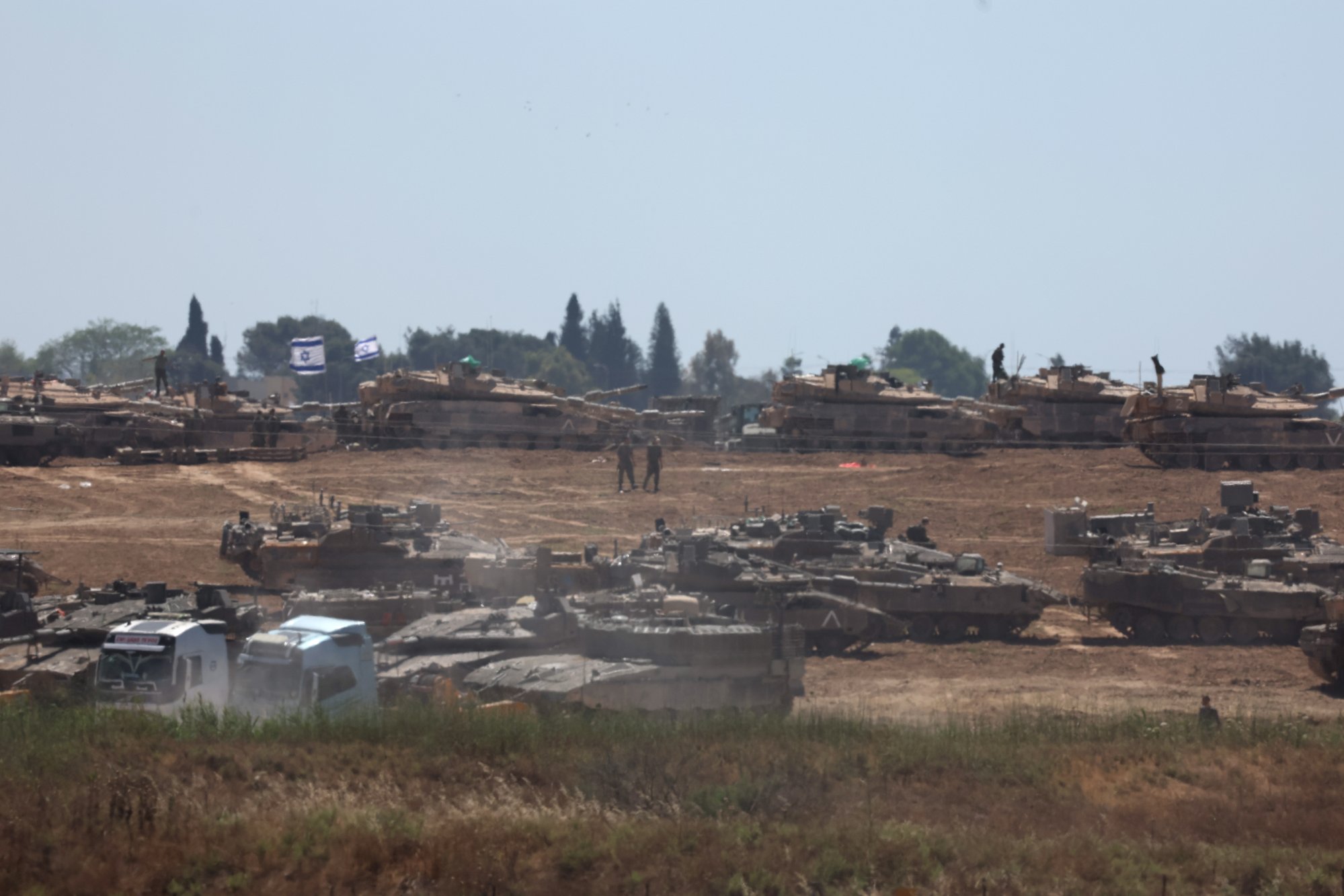
France joins China to condemn Israel’s Rafah attack plans in sign the European power is veering from US on key issues
- After talks between Xi Jinping and Emmanuel Macron, Beijing and Paris issue statement denouncing planned Israeli offensive against southern Gaza city
- French view of the Middle East conflict increasingly appears to align more closely with Chinese stance than Washington’s approach
While Washington has said it would not support a military operation in Rafah, US Secretary of State Antony Blinken earlier suggested the opposition was conditional, stemming from a lack of a plan to ensure civilians were not harmed.
“We cannot, will not support a major military operation in Rafah absent an effective plan to make sure that civilians are not harmed and no, we’ve not seen such a plan,” he said after a meeting with Israeli Prime Minister Benjamin Netanyahu last week.

Israel on Tuesday took control of a vital Rafah border crossing between Gaza and Egypt after rounds of overnight strikes on the city, even as Hamas agreed to a ceasefire proposal. Israel has said that the terms were “far from Israel’s essential demands”.
In their 10-point joint statement on the Middle East, China and France stressed that the top priority was a sustainable ceasefire while calling for the “immediate and unconditional release of all hostages”.
This view was also a departure from Washington’s approach, which has mainly focused on hostages held by the Hamas militant group, including American citizens.
But similar to the US – a close Israel ally – China and France called for the resumption of a political processes to implement a “two-state solution”.
Since the conflict broke out in October, Beijing has advocated for that position, which holds that an independent Palestine should coexist with Israel.
China and France also urged greater humanitarian efforts, calling for an opening of necessary corridors to ease delivery of aid in the Gaza Strip.
“The two heads of state called on all parties to avoid taking unilateral measures on the ground that may aggravate tensions, and condemned Israel’s policy of settlement construction in violation of international law, which will have a negative impact on lasting peace,” the statement added.

Monday’s statement was the latest indication that France’s views on the conflict had shifted away from the American position to align more with China. But it was not the first instance.
Less than two weeks after the war began in October, Washington vetoed a United Nations Security Council resolution put forward by Brazil calling for humanitarian access and protection of civilians in Gaza while China and France voted in favour.
That was again the case in December, when the US cast the only dissenting vote against a Security Council resolution that called for an immediate ceasefire.

